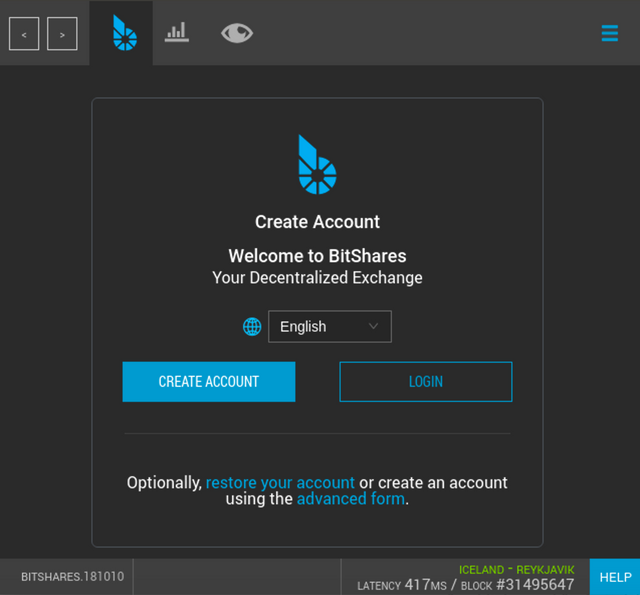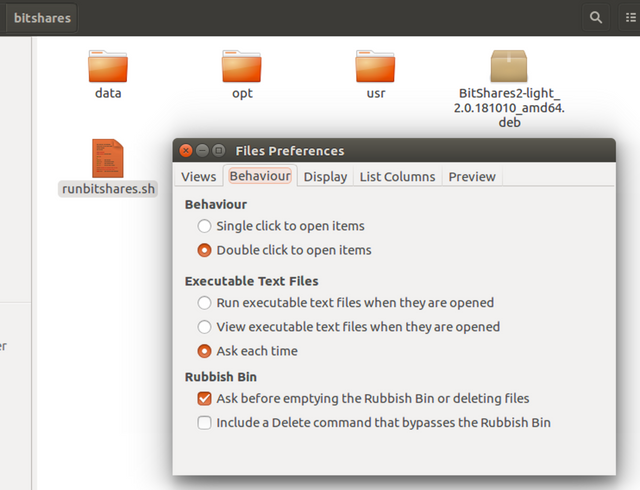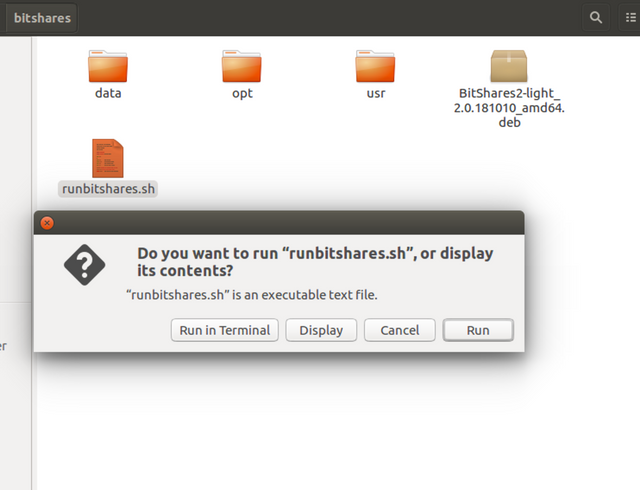
Using BitShares desktop application is more secure than using web sites for BitShares DEX. And it's better to keep your application files and keys (even encrypted) on encrypted device.
At first we need to know how to run the application without storing any data to a home directory. It could be done over defining XDG_CONFIG_HOME variable.
For example over running:
XDG_CONFIG_HOME=~/first bitshares2-light # to store data to ~/first directory
XDG_CONFIG_HOME=~/second bitshares2-light # to store data to ~/second directory
That method helps to invoke a few different instances (with different configurations and etc.) of bitshares2-light in the same time if it's necessary.
Well, let's go ahead and do it step by step.
Create ~/bitshares directory and ~/bitshares/data there:
mkdir -p ~/bitshares/dataDownload deb version of BitShares desktop client from github (https://github.com/bitshares/bitshares-ui/releases) and extract files from deb to ~/bitshares:
cd ~/bitshares
wget https://github.com/bitshares/bitshares-ui/releases/download/2.0.181010/BitShares2-light_2.0.181010_amd64.deb
dpkg -x BitShares2-light_2.0.181010_amd64.deb ./
- Test it:
cd ~/bitshares
XDG_CONFIG_HOME=./data ./opt/BitShares/bitshares2-light
In this way all data related to the application will be stored to ./data directory instead of ~/.config/BitShares2-light
- Prepare a script for easy executing:
echo '!#/bin/sh
XDG_CONFIG_HOME=./data ./opt/BitShares/bitshares2-light' > ./runbitshares.sh
chmod +x ./runbitshares.sh
Run in terminal for a testing:
./runbitshares.sh
- Run over file manager:
Now you can run the script over file manager easily. An example for Ubuntu Linux and Nautilus file manager. Open file manager, go to "Edit" -> "Preferences" and check "Ask each times" for "Executable Text Files" at "Behaviour" tab.

Go to ~/bitshares directory and make a double-click on "runbitshares.sh" and then click "Run".

Everything should work. What is next?
- Mount a flash drive, create an encrypted volume by VeraCrypt or dm-crypt/LUKS, mount the encrypted volume and move ~/bitshares there.
Test how it works. Then unmount the encrypted volume and unmount the flash drive.
From now your application and application's data are safer than before. I hope. ;)
Note: You can keep your encrypted volume in DropBox (or another cloud drive) and mount it remotely. You can use a hidden volume (can be done with VeraCrypt) for a better security - when police forces you to decrypt your flash drive :)
If you like RuDEX I recommend to try RuDEX-light application instead of BitShares:
https://github.com/blckchnd/rudex-ui/releases
Path to application is "./opt/RuDEX/rudex-light"
P.S.: More useful articles about Linux, macOS, security and crypto are coming.
Stay tuned.